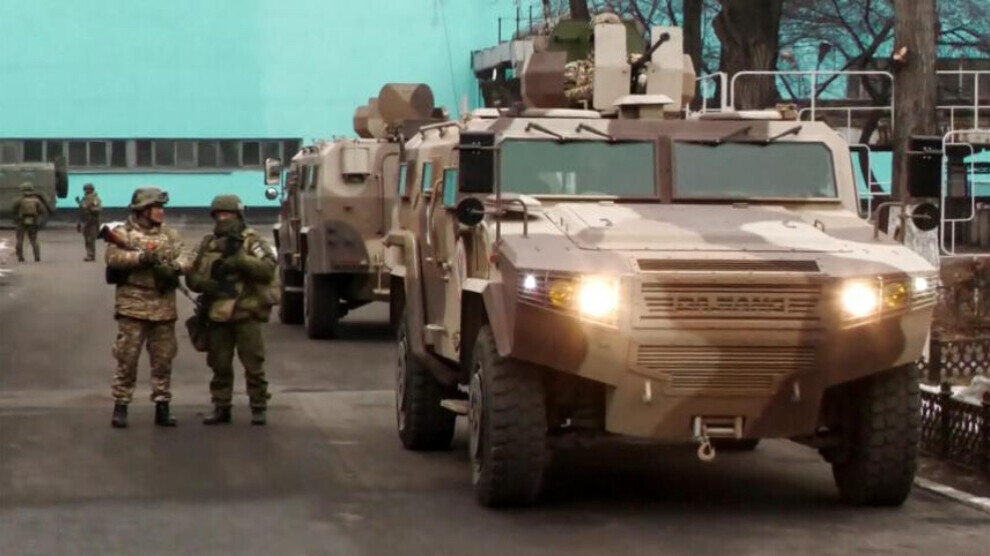Has Russia removed Kazakhstan from the 'Turanist' axis?
The unprecedented protest actions in Kazakhstan helped Russia. The Russian intervention was interpreted as its removal of Kazakhstan from the Turanist axis.
The unprecedented protest actions in Kazakhstan helped Russia. The Russian intervention was interpreted as its removal of Kazakhstan from the Turanist axis.

According to the Courrier International magazine, the Moscow daily newspaper Nezavissimaya Gazeta used the headline "Russia expelled Kazakhstan from the Turkish-speaking globe."
The newspaper stated that “It is the peacekeepers of the former Soviet countries, not the representatives of the Great Turan, that established the order in Kazakhstan." Great Turan is known as a racist panturk ideology that promotes the unity of the Ural-Altaic tribes.
According to the Moscow newspaper, Turkey is concerned about "losing the central link, Kazakhstan, in the Turkic world."
The uprising against the increase in the price of liquefied petroleum gas LPG, which occurred between January 2 and 9, was brutally suppressed. Kazakhstan, claiming that the protest was an "Islamic terrorist attack" requested assistance from the Collective Security Treaty Body, a military organization run by Moscow. Within the framework of this request, Russia dispatched troops to Kazakhstan.
The Russian media highlights former President Nursultan Nazabayev's panturkist doctrine as a twist of history. Since the Soviet Union's demise in 1991, Nazarbayev has worked to "assemble all Turkish-speaking countries in order to become an effective world force."
HAS THE PANTURKIST NAZARBAYEV’S TIME ENDED?
Nazarbayev was the primary target of the protests. Activists reacted to the seizing of security services by former President Nursultan Nazarbayev. During the protests, the slogan "Old man out" was frequently shouted against the 81-year-old Nazarbayev. Nazarbayev, who ruled the country from 1991 to 2019, transferred his duties to Kasım Cömert Tokayev, but retained the titles of "lifelong leader of the nation" and "Security Council President."
However, Tokayev, taking advantage of the protests, expanded his internal authority and took steps to end the Nazarbayev regime. Tokayev obtained the governmental agencies as a result of the protest actions. On January 5, at the start of the protests, Tokayev dismissed Nazarbayev from the national security council. The chief of the local security forces service, loyal to Nazarbayev, was also fired for "high treason." According to some experts, the main effect of the events in Kazakhstan was the "end of the Nazarbayev era." It is unclear what will happen to Nazarbayev, who stayed silent during the protests.
The Turkish government also hoped to benefit from the crisis in Kazakhstan. Defense Minister Hulusi Akar stated that they were ready to assist their "Kazakh brothers," citing their "successes" in Syria as an example. However, in the "successful" operations, several regions in Northern and Eastern Syria were overrun, and a terrorist rule was founded. In these regions, war crimes are committed daily.
Turkish Foreign Minister Mevlüt Çavuşoğlu mentioned Upper Karabakh as an example. With the support of the Turkish state, Azerbaijan invaded a substantial part of Nagorno-Karabakh in 2020 and defeated Armenia.